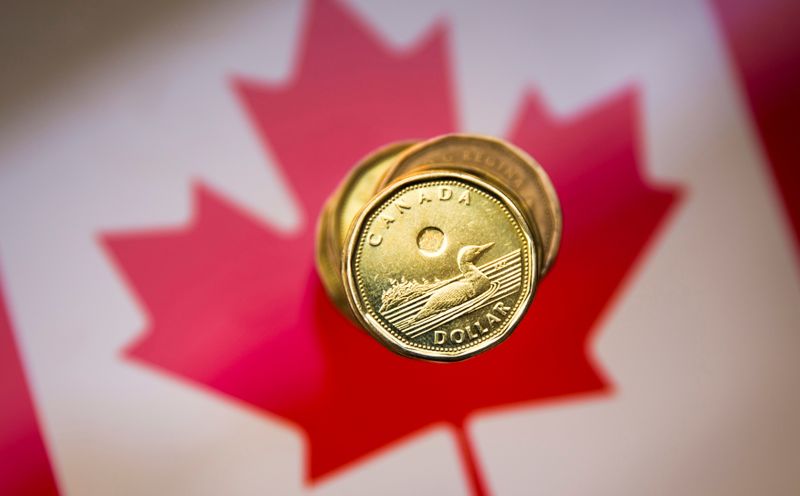TORONTO (Reuters) - The Canadian dollar strengthened against its U.S. counterpart on Monday as oil prices rose and domestic data, showing rising consumer confidence and building permits, supported the view that Canada's economy is recovering from the coronavirus crisis.
The Conference Board of Canada's Index of Consumer Confidence rose 16 points to 79.7 in June as the country continued to reopen from COVID-19 imposed lockdowns. The index stands at about two-thirds of its pre-pandemic level of 120.6.
Separate data, from Statistics Canada, showed that the value of Canadian building permits rose by 20.2% in May from April. It was the largest percentage increase since March 2009.
The price of oil, one of Canada's major exports, was supported by improving economic data and supply cuts by major producers, though a spike in new coronavirus infections around the world capped the gains as some countries were forced to reimpose partial lockdowns. U.S. crude (CLc1) prices were up 0.9% at $38.85 a barrel.
Futures tracking U.S. stock indexes edged higher following a selloff on Wall Street last week as investors weighed hopes of more stimulus and improving data against a resurgence in coronavirus cases.
The Canadian dollar
Speculators have cut their bearish bets on the Canadian dollar, data from the U.S. Commodity Futures Trading Commission showed on Friday. As of June 23, net short positions had decreased to 20,834 contracts from 25,486 in the prior week.
Canada's GDP data for April is due on Tuesday, which could help guide expectations for further stimulus measures from the Bank of Canada.

Canadian government bond yields were higher across a steeper yield curve, with the 10-year (CA10YT=RR) up 1.6 basis points at 0.525%.